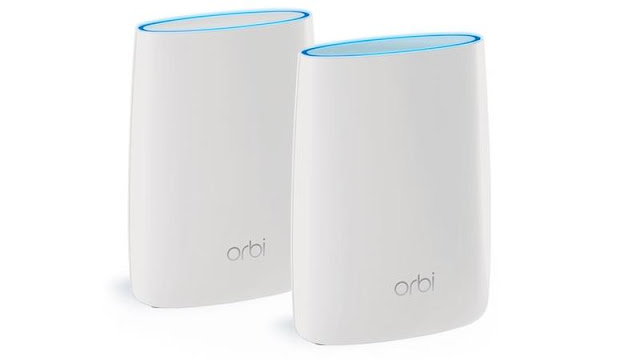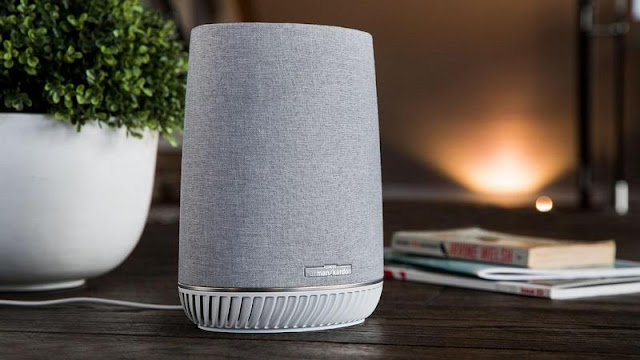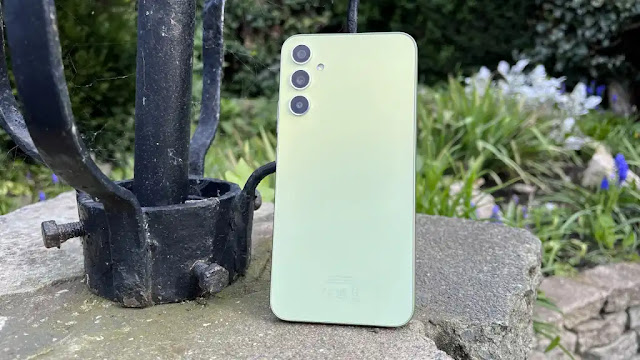The D-Link Covr X1862 mesh Wi-Fi system provides an affordable way to get access to whole-home Wi-Fi 6 coverage.
Should I Buy The D-Link Covr X1862?
Pros
- Strong, reliable wireless connection
- Wi-Fi 6 compatibility
- Compact design
Cons
- No Powerline
- Two units may not be enough for larger homes
Our Verdict
Price When Reviewed
- Unavailable
Mesh Wi-Fi systems offer a huge improvement over traditional routers, offering a way to vastly extend the range of your home Wi-Fi network without a drop in performance, or even boost it. D-Link takes things to the next level with its latest iteration of Covr, offering the latest Wi-Fi 6 wireless standard.
If you’ve got Wi-Fi 6-compatible tech in the home, the D-Link Covr X1862 mesh Wi-Fi system could be a worthwhile upgrade – especially because it’s surprisingly affordable.
Design & Build
The Deco Covr mesh Wi-Fi system comes in two configurations – a two-unit system, reviewed here, or a three-unit bundle. Whichever you opt for, the design of the units themselves is identical, sporting a small, round-edged form factor discreet enough to sit on a shelf without drawing much attention to itself.
The units are devoid of flashing lights and protruding antennae, sporting only a single white LED embedded in the top grille of the units to display current connectivity status, but even that can be disabled via the D-Link Wi-Fi app.
It’s also much shorter than competing rivals like the TP-Link Deco P9 system measuring in at 104 x 104 x 112mm, helping the system disappear into your home environment.
There’s no main unit as with some mesh Wi-Fi systems, meaning you’ll find both a WAN (labelled 'internet') and LAN port on the rear of both Covr units. The latter is handy, allowing you to connect to Ethernet-enabled devices like a PC, console or anything else you might want to connect to the internet, while the former connects your mesh system to your home router.
Of course, there’s much more to a mesh Wi-Fi system than just the design – and that’s where the Covr truly begins to shine.
Setup & Smart Features
One of the perks of mesh Wi-Fi networks, in general, is that they’re much simpler to set up than traditional routers, and that’s true of the D-Link Covr too. You don’t need a laptop or PC to set the system up, only the D-Link Wi-Fi app available for iOS and Android.
The app provides simple-to-follow instructions that allowed us to completely set the network up in less than 5 minutes, helped in part by the fact that the Covr units come pre-paired out of the box, so there’s no finicky pairing process as with other cheap mesh Wi-Fi networks.
Parental controls will be a popular feature for families, allowing you to assign devices to specific family member profiles and use that information to apply blocks on devices and websites, set internet access schedules or disable Wi-Fi access entirely without affecting other devices connected to the network.
There’s also a Wi-Fi Guest Zone feature that allows you to set up an entirely independent network for additional security and a built-in speed test powered by Speedtest.net to test your ISP-to-home connection. You're also able to control the mesh Wi-Fi network with your voice if you've got an Echo or Nest device, offering support for both Google Assistant and Amazon Alexa.
Performance
The headline feature of the new D-Link COVR system is the introduction of Wi-Fi 6 (aka 11.ax), which allows up to 1.8Gbps wireless data transfer over the 5GHz network. That’s based on theoretical data transfer and not internet speeds sadly, so don’t expect to download games at 1.8Gbps with a 100Mbps Virgin Media connection, but it’s certainly future proof and it’ll improve local streaming too.
In fact, Wi-Fi 6 is up to 90% faster than Wi-Fi 5 (11.ac) according to some tests. It’s possible because it utilises 1024-QAM instead of 256-QAM of older networks, improving data transfer, and the 120MHz channel width allows more devices to be connected at once too. It’s much more than just raw speed though.
Wi-Fi 6 introduces a host of new technologies including the new OFDMA (Orthogonal Frequency Division Multiple Access), MU-MIMO, Smart Steering, Smart Roaming and BSS colouring that when combined provide a more efficient wireless connection, especially when multiple devices are connected at the same time.
That translates to less lag in gaming, faster downloads and more reliable video chats even during busy usage periods – something I’ve noticed during my testing, with a pleasant lack of lag during video chats, and it makes cloud-based game streaming over the 5GHz network viable too. D-Link has a handy infographic that helps you visualise the improvements that Wi-Fi 6 tech can provide:
The extra unit extends the coverage range from 420 square meters to 600 square meters, but after using the two-system for some time, I think the 420sqm on offer from the duo is enough for most homes – it certainly left me with no complaints during testing in a two-story terraced London home, with none of the usual signal blackspots experienced with traditional single-unit routers.
I tested the Wi-Fi signal strength at several places in the home, benchmarking data transfer speeds rather than internet download speeds as the latter will depend on the ISP in your area.
To demonstrate the benefits of the Wi-Fi 6 mesh network experience the D-Link COVR X1862 provides, I’ve compared it to the Wi-Fi 5-enabled TP-Link Deco P9 (three-pack) and a standard Virgin Media Hub 3 too.
D-Link COVR X1862 (Wi-Fi 6 AX) | TP-Link Deco P9 (Wi-Fi 5 AC) | Virgin Media Hub 3 (Wi-Fi 5 AC) | |
1 m | 786Mbps | 609Mbps | 541Mbps |
5 m with wall | 475Mbps | 444Mbps | 315Mbps |
Downstairs near the rear of the house | 394Mbps | 368Mbps | 40Mbps |
End of the garden | 107Mbps | 100Mbps | - |
It’s easy to see the benefits on offer from a Wi-Fi 6 mesh system, with a jump in speeds not only when standing near a unit, but anywhere in the home – and that’s compared to the Deco P9 mesh Wi-Fi system that utilises powerline connectivity to maximise speeds through thick walls, something not offered by the Covr system.
Impressively, despite only having two units compared to the three units of the Deco P9 system, the D-Link Covr X1862 also managed to match the range while providing slightly improved speeds – likely in part down to the Smart Steering and Smart Roaming tech on offer.
Of course, your smartphone, tablet and other smart devices will also need to support Wi-Fi 6 to take advantage of the speedy network, with older devices connecting to the Wi-Fi 5 network.
Price & Availability
The D-Link Covr X1862 (two-pack) comes in at a rather tempting £124.99, offering impressive bang for your buck with great range, Wi-Fi 6 capabilities and reliable wireless performance.
If you need more coverage, the three-pack X1863 comes in at £189.99, and both are available exclusively from Amazon in the UK right now with a two-year D-Link warranty.
It’s not available in the US, unfortunately – for more options, and to see how the Covr system compares to the competition, take a look at our selection of the best mesh Wi-Fi systems.
Verdict
The D-Link Covr X1862 mesh Wi-Fi system is hard to criticise; it offers fast Wi-Fi 6 connectivity with strong, reliable performance that outperforms the likes of the Deco P9, which has been a favourite of ours since its release in early 2020, and the D-Link Wi-Fi app is both full of features and well designed too.
Powerline connectivity would be a boon for some but considering the sub-£130 price tag for the two-unit system, you’ve got one of the best mesh Wi-Fi systems available right now.
Specs
- 104 x 104 x 111.8 mm
- 263g per unit
- x2 units in the box
- 420 square meter coverage
- Wi-Fi 6
- 2 x 2.4G WLAN Internal Antenna, 2 x 5G WLAN Internal Antenna
- 2.4 GHz Up to 574 Mbps, 5 GHz Up to 1201 Mbps
- 1 x WPS Button, 1 x 10/100/1000 Mbps Gigabit Ethernet ports, 1 x 10/100/1000Mbps Gigabit Ethernet WAN Port. 1 x Power Connector
- Smart Roaming
- OFDMA
- Smart Steering
- Parental Controls
- Guest Wi-Fi network





















0 comments:
Post a Comment